
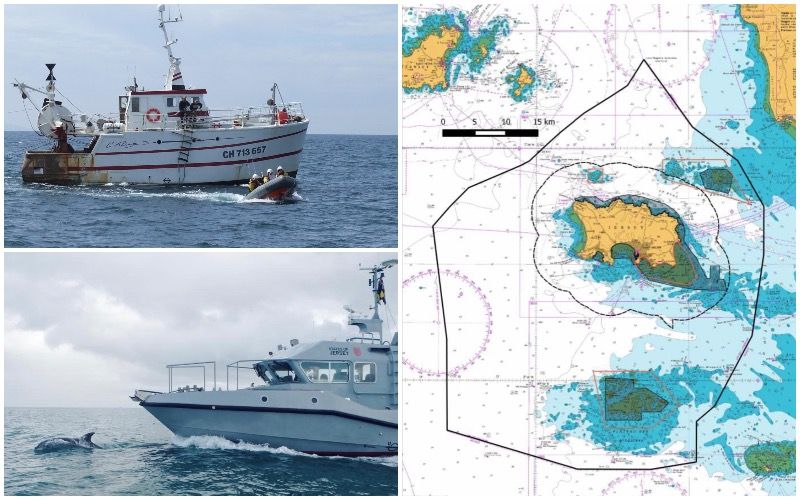

Jersey takes control of its territorial waters for the very first time tomorrow.
From midnight tonight, large French trawlers and dredgers fishing inside Jersey’s 12-mile limit will have to hold a licence issued by the Environment Minister.
Without it, they will be fishing illegally and could face prosecution.
External Relations Minister Ian Gorst met virtually on Friday with EU Fisheries Commissioner Virginijus Sinkevicius to discuss the progress being made on the new licensing scheme. He also told the Commissioner about the administrative difficulties that Jersey’s fishermen landing their catch in France have faced.
1 May marks the first time ever that Jersey will have full control over the management of its seas – a position that will be cemented on 1 July when smaller French boats under 12m also have to hold a licence.
Between 2004 and 31 December last year, the management of Jersey’s waters between three and 12 miles was shared between France and the Island under the Bay of Granville Agreement, which was signed by France and the UK in 2000.
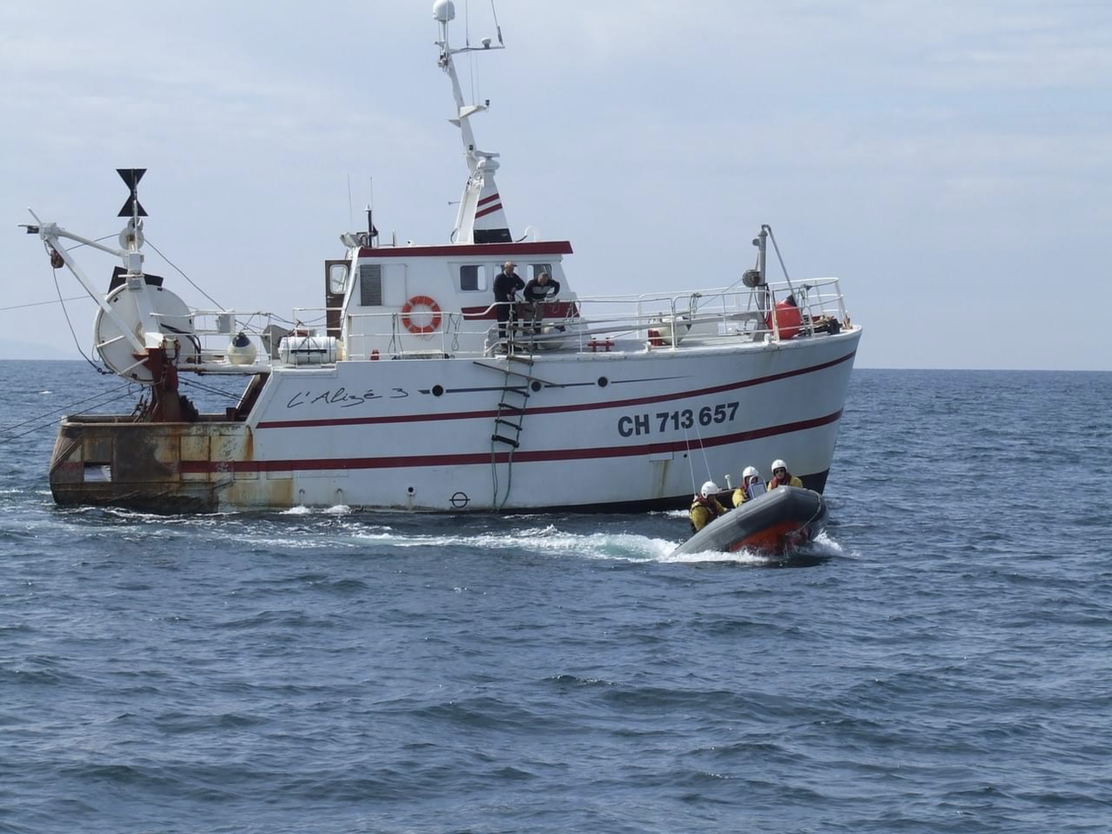
Pictured: Only licensed French boats over 12m will be able to fish in Jersey’s waters from midnight tonight.
Before that, Jersey only had control out to three miles and around the Ecréhous and Minquiers reefs. The space in between was classed as “common sea” not belonging to anyone.
The change has come about because of Brexit, with the UK and Jersey becoming a ‘third country’ in the eyes of the EU. A trade deal between the two nations was signed at the end of December, which was finally ratified by the EU on Tuesday.
Many predicted that fishing would become a flash point, particularly in Jersey. This was not only because of the Island’s proximity to France but also because most Jersey produce - in particular lobster, crab and shellfish - is exported there.
Sure enough, the last five months have been marked by hostility, with France accusing Jersey of making up rules and threatening to oust the Island from the trade deal, while Jersey has accused French fishermen of breaking the spirit of the agreement and port authorities of unnecessary officiousness.
Jersey fishermen have also accused their political leaders of failing to back them and kowtowing to the French, particularly in the granting of a four-month amnesty which allowed the old licensing regime to continue.
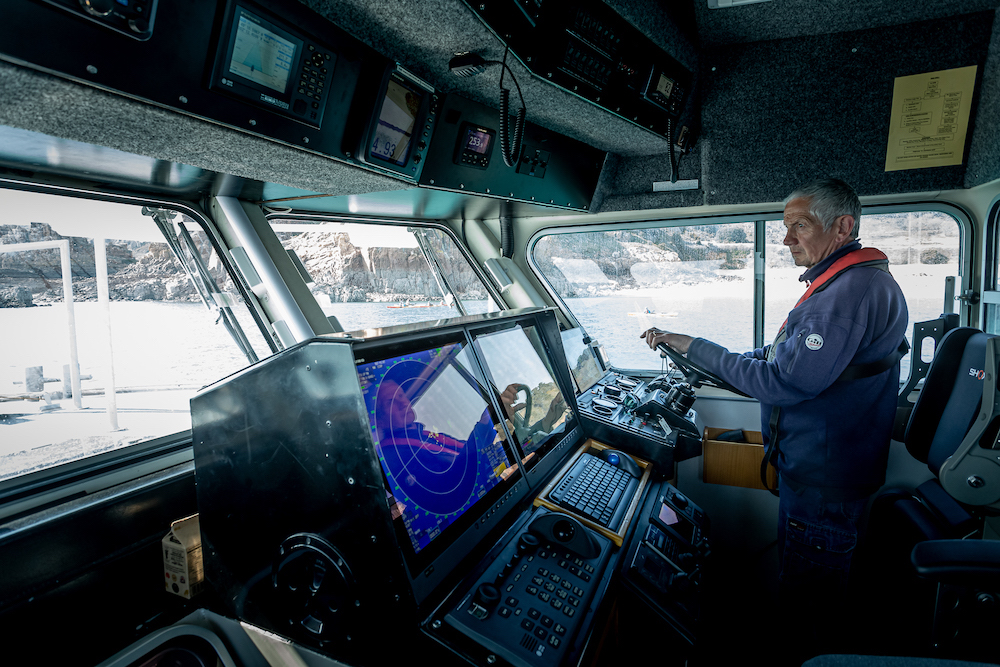
Pictured: Jersey’s fisheries protection vessel, Norman Le Brocq, has recently returned from refit in the UK.
With Jersey now issuing licences to French boats based on evidence of past fishing activity as set out in the trade agreement - providing proof that they have fished around Jersey on at least ten occasions in any one of the last three years - ministers will be hoping for calmer waters.
However, as Environment Minister John Young told the States last week, there could be a lot of chop ahead as the impact of the new regime is felt.
Under the Bay of Granville Agreement, around 420 French boats were licensed to fish in the shared waters and of those, almost 100 were over 12m.
On Friday, Deputy Young issued 41 licences to French vessels. Data relating to 57 boats was submitted in the amnesty period, including 14 applications received by Jersey authorities on Friday. Licensing decisions on those 14 vessels will be made as soon as possible.
The reduction means that the majority of previously licensed boats no longer have the right to fish around Jersey. This will primarily be because they did not have any evidence of past activity, having stopped (or never started) operating around Jersey, despite holding a Bay of Granville Agreement licence.
Ministers in Jersey will be hoping that losing that right won’t set any Gallic blood boiling. Jersey also wants the continued cooperation of the French, particularly its vast scientific resources to help manage stocks.
French boats who actually fish in Jersey’s waters will also need to give catch data to Jersey, which is a condition of their licence. If that data is not forthcoming, the licence can be taken away.
French fishermen working around Jersey who don’t hold a local licence will be working illegally and can be prosecuted through Jersey’s courts.
Officers from Jersey’s Marine Resources Section within the Environment Department have policed Jersey’s waters for many years and have powers to board and arrest any fisherman who breaks Jersey’s fishing laws.
France, like Jersey, has implemented international ‘Illegal, Unreported and Unregulated’ [IUU] measures so it also has a legal obligation to prosecute any fishermen flying the Tricolore if they are fishing illegally, wherever that may be.
As well as physical patrolling, fisheries officers can also track boats using the vessel’s onboard ‘vessel monitoring system’. Boats over 12m are legally required to carry such equipment and transmit their location when at sea.
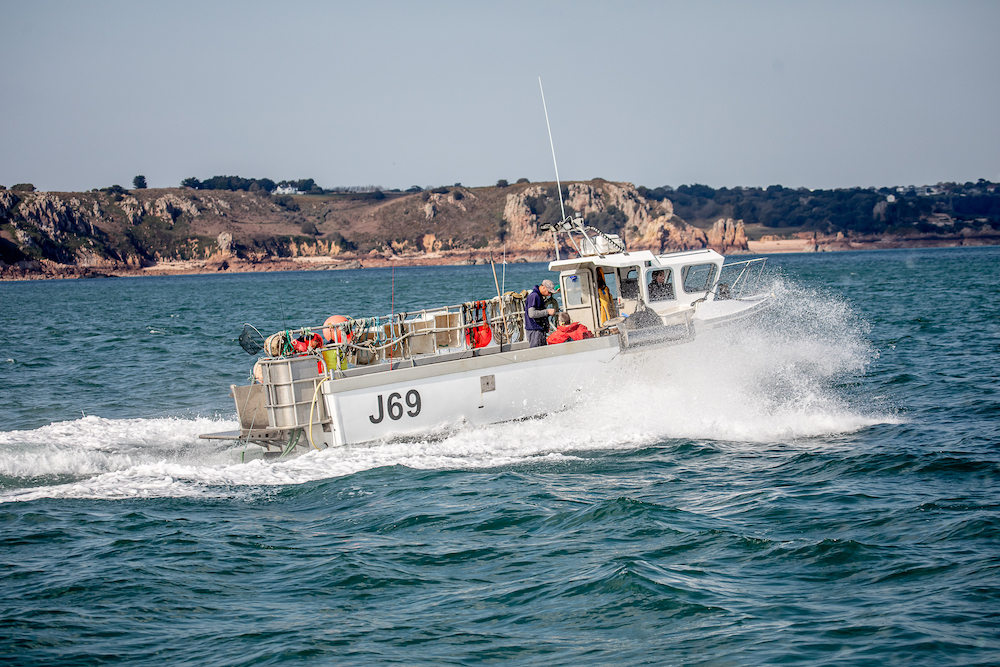
Pictured: Jersey fishermen hope that the new regime will stop large French trawlers and dredgers decimating fish and shellfish stocks around the Island.
In addition to policing its waters, Jersey will also take sole responsibility for managing its marine environment from tomorrow. However, any restrictions - such as closing off areas to fishing - must be based on scientific evidence and apply equally to Jersey and French fishermen.
Fisheries officers have conducted research into species and habitats for many years, often in partnership with local fishermen, but their work will take on new importance under the new regime.
In recognition of this, £526,000 worth of extra funding was allocated to the section in the last Government Plan (2021-24), including £250,000 this year. This includes recruiting two extra officers to work on science projects.
While a Government announcement is expected later today on the new regime, the fishing industry - which has been frank in its criticism of Government - waits with bated breath and a healthy dose of scepticism.
Jersey Fishermen’s Association President Don Thompson told Express: “We certainly have high hopes that the new regime is fair and equitable but the Government, despite us asking for dialogue, has been light-lipped, so we remain concerned that we will be treated differently to French boats.
“I don’t want to be overly negative and maybe there’s a good reason why they’ve kept things under wraps but I remain to be convinced.
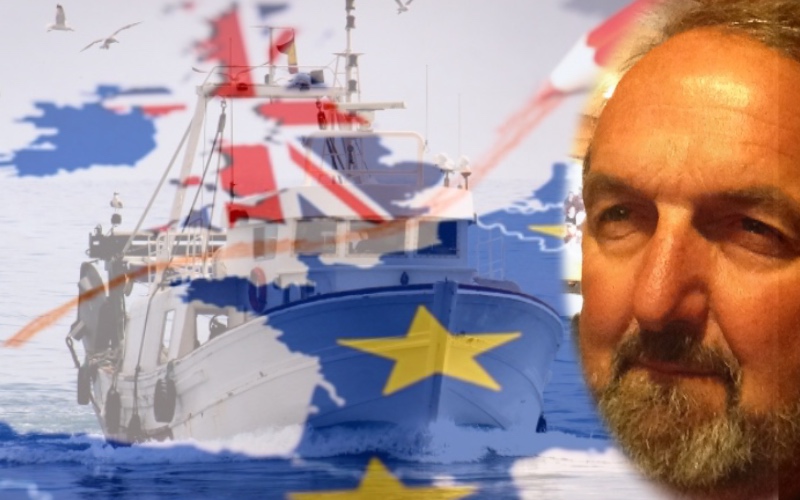
Pictured: Jersey Fishermen’s Association President Don Thompson: “I remain to be convinced.”
“Under the old regime, the French authorities had the scope to licence up to 420 boats – they basically licensed anything that floated and only a small number of those boats ever made use of it.
“The boats that have fished here before and have a clear track record of activity would have been very quick to come forward with information. It’s why we don’t understand why we needed a fourth-month amnesty from January to now: a French boat either had the information or it didn’t.
“The only thing that latecomers could have done is cook up data and we have anecdotal evidence from France that that has happened - with VMS information transferring from one boat to another.
“But let’s see what happens in the days, week and months ahead. I want the new regime to work but I fear I am going to be disappointed.”
Ministers will clearly be hoping that, on the contrary, Mr Thompson and other Jersey fishermen will be pleasantly surprised.
Comments
Comments on this story express the views of the commentator only, not Bailiwick Publishing. We are unable to guarantee the accuracy of any of those comments.